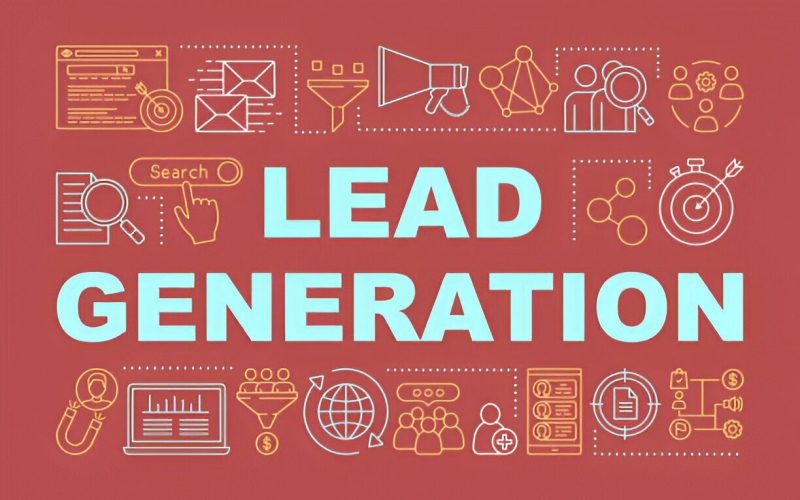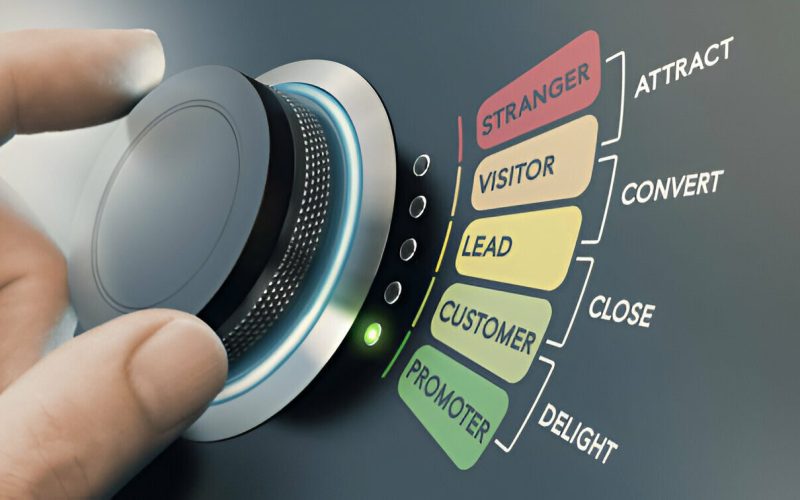What are leads in sales? Leads are potential customers who show interest in your company’s products or services. They are the first crucial step in the conversion process, representing real business opportunities.
Identifying and capturing quality leads is fundamental to drive your company’s growth. At Springboard35, business development consulting, we understand the importance of leads in sales and offer effective solutions to help you generate and manage them efficiently.
With our experience and customised strategies, we will help you convert leads into satisfied and loyal customers.
What are leads in sales
In the competitive world of sales, a lead is much more than just a piece of data stored in a company’s database. It represents the start of a valuable and strategic connection. When a user decides to share their data with us, they are opening the door to a relationship of trust and collaboration. This transaction goes beyond a simple handing over of information; it is the beginning of a subtle but powerful dialogue between both parties.
The user, by giving their data, not only allows the company to interact with them, but also indicates a genuine interest in what we offer. It is as if they are extending an invitation to learn more about our offerings, services or products. In return, the company is committed to approaching this relationship in a respectful and non-intrusive manner.
This process of lead capture is fundamental to modern sales and, in this step, having a sales representation (SDR) team can be crucial. It allows companies to reach users in a more personalised and effective way. Through various strategies, such as offering specialised content, registering for webinars or downloading informational materials, companies can attract the attention of users and convert them into leads.
Once a user becomes a lead, a process of continuous interaction begins. The company can communicate with them through a variety of tools, such as email, social media or personalised messages. This allows you to maintain regular contact and provide relevant information in a timely manner.
It is important to note that the definition of a lead can vary depending on the context. It depends on the specific moment in the user’s buying cycle, as well as their level of interest and engagement with the brand.This flexibility can create some ambiguity, but it also offers the opportunity to adapt our strategies to the needs and preferences of each user.
However, it is essential to remember that treating a user as a lead carries with it a great responsibility. It is necessary to obtain their explicit consent and respect their privacy at all times. With the implementation of regulations such as GDPR, it has become even more important to ensure that all lead acquisition and management practices comply with the highest ethical and legal standards.

Types of leads that exist
Sales leads are the driving force behind lead generation and business growth. However, not all leads are the same. There are different types of leads, each with different characteristics and levels of interest. Understanding these differences is crucial to developing effective sales and marketing strategies.
Cold leads
These are users who show curiosity or a minimal interest in the company’s products or services. They may have interacted with the company’s website or social media in a superficial way, but are not yet ready to commit to a purchase.
Information Qualified Lead (IQL)
These leads have shown some interest or increased curiosity about the company, perhaps by downloading a free resource (ebook) or subscribing to a newsletter, an event or a webinar. Although they are not yet ready to make a purchase, they are more interested in your product or service, as well as more receptive to receiving additional information.
Cool leads or Marketing Qualified Lead (MQL)
These are leads that have shown a higher level of interest in the company’s products or services by asking or requesting information about them through a contact form, for example, and are willing to participate in sales conversations or discovery meetings.
Warm leads or Sales Qualified Leads (SQL)
These are leads that have demonstrated significant interest in the company’s products or services and meet certain qualification criteria, such as budget, authority, need and time (BANT). These leads are closer to becoming customers and require more personalised attention from the sales team.
Hot leads or Sales Accepted Leads (SAL)
These are leads that have expressed a strong interest in buying your product or service, are a good fit in terms of features, price, etc. and are ready to move on to future sales conversations and even request a formal proposal or quote. Their intent to buy is quite clear (although never absolute until they sign a contract) and they are at the final stage of the buying process or, in other words, at the bottom of the funnel.
Lost or inactive leads
These are leads that, for various reasons, have stopped interacting with the company (the famous ghosting) or have expressed their lack of interest in your product or service due to situations as adverse as they are varied (change of management of their company, rethinking of a certain strategy, etc.). Although they may represent a lost opportunity in the short term, they can still be the object of reactivation strategies in the future.

The importance of leads in a business
The importance of leads to a business lies in their ability to drive growth and profitability. Leads represent real business opportunities, as they are interested users who have expressed an interest in the company’s products or services.
By effectively capturing and managing quality leads, companies can nurture their sales funnel, increase their customer base and generate long-term sustainable revenue. In addition, well-qualified leads allow sales teams to focus their efforts on prospects with higher conversion potential, thereby optimising the sales process and improving operational efficiency.
In a competitive and constantly evolving market, a solid lead generation and management strategy is a key factor for business success.
For this reason, at Springboard35 we give paramount importance to the proper qualification of leads after thorough prospecting, and this unique and proven qualification methodology has allowed us to get to where we are: more than 20 years expanding more than 200 innovative technology companies in Southern Europe and Latin America.
If you would also like us to help your B2B technology company expand and grow its sales, contact us and we will discover together how to achieve your business goals.

